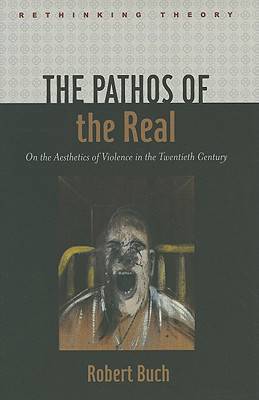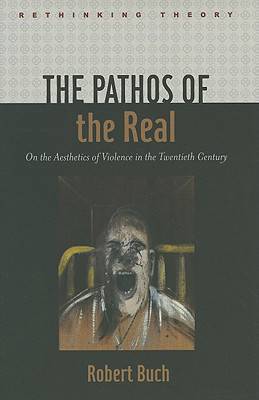
- Retrait gratuit dans votre magasin Club
- 7.000.000 titres dans notre catalogue
- Payer en toute sécurité
- Toujours un magasin près de chez vous
- Retrait gratuit dans votre magasin Club
- 7.000.000 titres dans notre catalogue
- Payer en toute sécurité
- Toujours un magasin près de chez vous
Description
This book is about the ambition, in a set of paradigmatic writers of the twentieth century, to simultaneously enlist and break the spell of the real--their fascination with the spectacle of violence and suffering--and the difficulties involved in capturing this kind of excess by aesthetic means.
The works at the center of this study--by Franz Kafka, Georges Bataille, Claude Simon, Peter Weiss, and Heiner Müller--zero in on scenes of agony, destruction, and death with an astonishing degree of precision and detail. The strange and troubling nature of the appeal engendered by these sights is the subject of The Pathos of the Real. Robert Buch shows that the spectacles of suffering conjured up in these texts are deeply ambivalent, available neither to cathartic relief nor to the sentiment of compassion. What prevails instead is a peculiar coincidence of opposites: exaltation and resignation; disfiguration and transfiguration; agitation and paralysis.
Featuring the experiences of violent excess in strongly visual and often in expressly pictorial terms, the works expose the nexus between violence and the image in twentieth-century aesthetics. Buch explores this tension between visual and verbal representation by drawing on the rhetorical notion of pathos as both insurmountable suffering and codified affect and the psychoanalytic notion of the real, that is, the disruption of the symbolic order.
In dialogue with a diverse group of thinkers, from Erich Auerbach and Aby Warburg to Alain Badiou and Jacques Lacan, The Pathos of the Real advances an innovative new framework for rethinking the aesthetics of violence in the twentieth century.
Spécifications
Parties prenantes
- Auteur(s) :
- Editeur:
Contenu
- Nombre de pages :
- 232
- Langue:
- Anglais
- Collection :
Caractéristiques
- EAN:
- 9780801897566
- Date de parution :
- 25-11-10
- Format:
- Livre relié
- Format numérique:
- Ongenaaid / garenloos gebonden
- Dimensions :
- 157 mm x 229 mm
- Poids :
- 430 g







